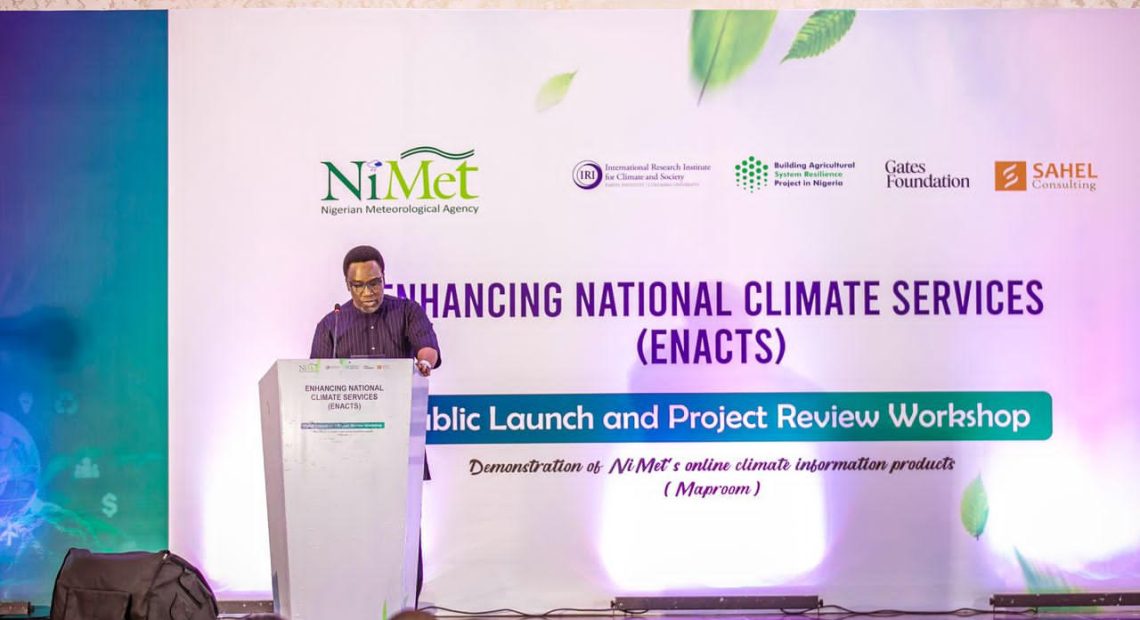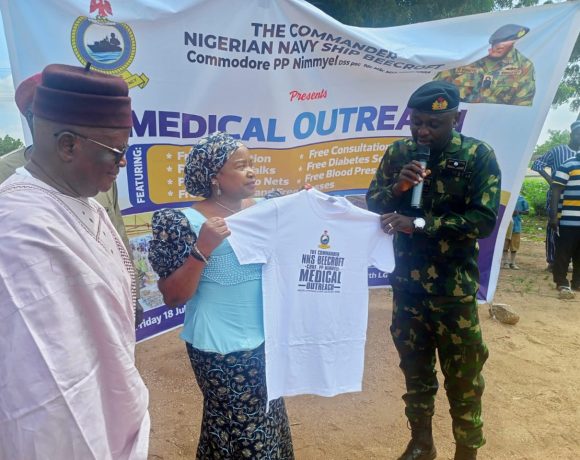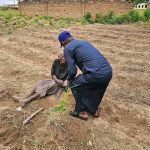Nigerian Meteorological Agency moves to enhance climate services

Nigeria
The Nigerian Meteorological Agency (NiMet), in partnership with Sahel Consulting, the International Research Institute for Climate and Society (IRI), and the Bill & Melinda Gates Foundation, yesterday officially launched the Enhancing National Climate Services (ENACTS) initiative to improve access to reliable climate information across Nigeria.
The two-day event, held in Abuja under the Building Agricultural Systems Resilience in Nigeria Project, also included a comprehensive Project Review Workshop with key stakeholders from agriculture, health, water resources, blue economy, and disaster management sectors.
ENACTS combines ground-based weather observations with satellite data to create accurate, user-friendly climate information products. A major highlight was the unveiling of NiMet’s new Maproom portal—a digital platform offering over 40 years of high-resolution climate data at a 4-kilometer grid resolution. The interactive Maproom enables detailed climate analysis and visualization, supporting evidence-based decision-making throughout multiple sectors.
In his keynote address, NiMet Director-General Prof. Charles Anosike described ENACTS as a “vision brought to life through consistency, partnership, and a shared commitment to national development.” He emphasized the platform’s wide-ranging impact, particularly in agriculture, linking it to President Bola Ahmed Tinubu’s Renewed Hope Agenda focused on food and nutrition security. “The Maproom will empower farmers with precise rainfall patterns, temperature forecasts, drought risks, and dry spell alerts, enabling climate-smart agriculture and improved food security,” Prof. Anosike said.
Workshop participants reviewed project milestones and expressed confidence that ENACTS would drive innovation, boost climate resilience, and enhance delivery of meteorological services. By closing Nigeria’s climate information gap, the initiative aims to strengthen disaster preparedness, support climate-smart practices, and reinforce NiMet’s leadership as a premier meteorological institution in Africa. It also aligns with the Federal Government’s goals for sustainable development and national food security









